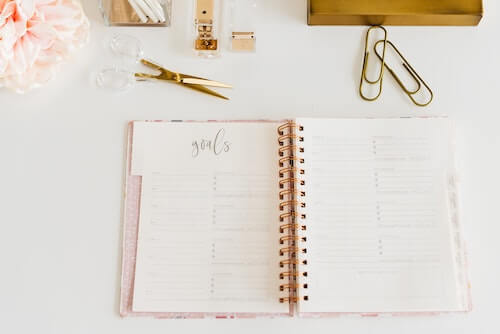Five Ways to Save a Bad Day

© Pascal Debrunner
“Bad” days happen for all of us—life can be unpredictable and throw us daily challenges. Managing our emotions and outlook during these can be an uphill climb. But we don’t have to write off an entire day and sink into a despair spiral when something goes wrong. It’s important to take care of how we feel and find ways to work through it and come out on the other side.
Here are some of five ways to save a bad day.
Save it with an indulgence.
Do something that your body will appreciate! You can light incense or use an essential oil diffuser for aromatherapy, a proven way to lift your mood. To keep following your nose, a shower or slow bath with more beloved scents could help. Other possibilities are going to a park, exercising, getting a massage, cooking, or ordering a favorite dish.
You can also watch something funny, play music you love, purchase or read a book you know you’ll enjoy, or turn to other hobbies not on this list. There are many hacks to make your body release happy hormones.
Write, paint, or dance it out.
Experiencing and expressing our emotions and frustrations should be normal and doing it privately in a way that fully engages us can be a quick and healthy way to do just that. Activities like journaling or moving or painting in expressive motions can connect us with our thoughts and feelings. Important here: do it in a way that is safe from judgment and harm. The point is to allow our bodies to move through difficult feelings like anger or sadness, rather than denying or suppressing our negative emotions. Doing so helps us to heal and move past difficult emotions and better learn what our bodies need to get something “out of our system,” even if we need to use it regularly.
Make a change
Bad days can make us feel powerless or overwhelmed. Besides simply taking care of our mood, there may be other concrete steps we can take to save our future selves from vexation. Especially if we find ourselves trapped in unhealthy patterns. What could benefit us most is making a determination or action plan to do things differently. This could mean changing our habits or trimming down our unwanted commitments.

It could be removing something from our schedule, asserting a boundary and saying “no” to someone, or finding a technological shortcut, such as having your food or groceries delivered. A lasting and worthwhile change should value our time and energy and allow us to spend it instead on the things that matter to us. Sometimes challenges are opportunities to make a needed change in our lifestyle.
Gratitude!
This suggestion is so easy and ubiquitous that we can easily breeze right past it. Simply put, gratitude can help us save a bad day by putting it into perspective. It shouldn’t be used to minimize or dismiss anything that needs attention but going to bed and ending a day thinking about the things that went right can soften a sour mood and help us feel better.
Hang out with a trusted friend.
It could be a furry friend or a special human you really like spending time with! Just hanging out with someone can help us calm our nervous system and regulate our emotions, whether we talk about our problems or not. Parallel play is something that toddlers do when they play alongside each other without necessarily interacting with or influencing one another—and adults are not barred from parallel play. It’s a gentle way of observing another person and sometimes slowly (or unconsciously) modifying our actions to mirror the other while working towards the same goal.

The benefits can be subtle but powerful, not least in helping us feel accepted and connected. We may even spot an opportunity during these hangouts to share thoughts and reflections on what we’re going through, gaining even more emotional support and encouragement.
Lastly, find your glimmers.
Glimmers are a concept from Polyvagal theory that refer to the cues that help return us to a sense of safety, calmness, and connectedness with the self and others. They are the opposite of triggers, which are now a commonly understood concept from Psychology, and a person’s glimmers can be just as individual and unique as their triggers. Making an inventory of our glimmers can go a long way in knowing how to take better care of ourselves and thus save a bad day. Make it a goal to discover your glimmers and use them with these tips!



